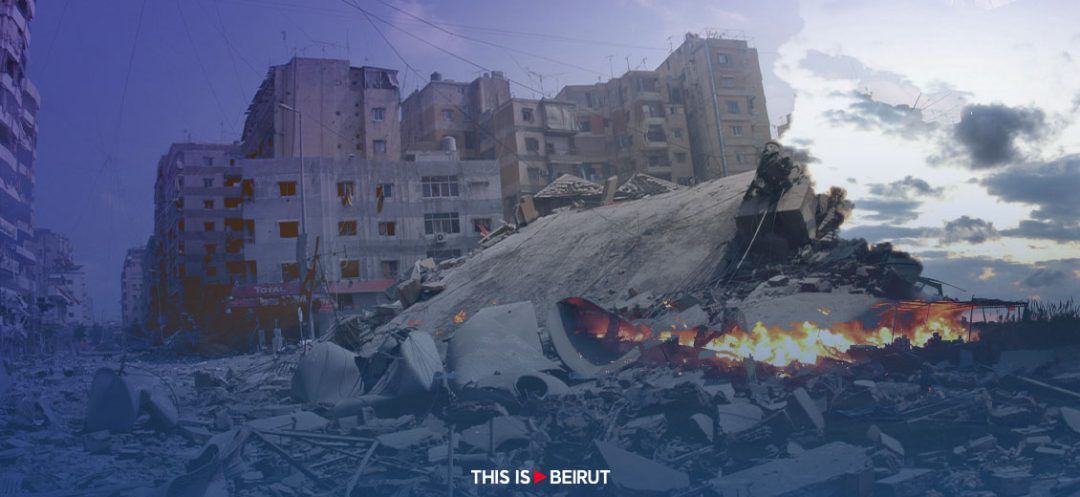
Houses continue to crumble, people are succumbing beneath the rubble, and the olive fields, a lifelong toil, are turning to ash. No one cares, except the Minister of Economy who reduced it all to abstract figures: damages, he claims, are estimated between 7 and 10 billion dollars. But the minister who aims to be the Great Vizier, did not dare see the cause-and-effect correlation between these damages and the madness of Hezbollah.
In fact, the minister has no clue; he just wants to justify his title. And he is not the only one. No one is quantifying the daily damages or even visiting the sites targeted by the latest missiles. Besides, the figures seem excessive, almost reaching half of the GDP, which is absurd. In any case, it does not elicit unanimity; occasionally, other far-fetched estimates, around 2 billion, emerge out of nowhere.
That being said, war-related losses represent a significant matter which is far more complex and enduring than it may seem. For the sake of clarity, we will try to categorize them:
- First category: human losses, whether deadly or resulting in a major handicap. In each case, the anticipated or planned lifetime productivity is lost. Decades of productive output are wiped out, inherently challenging to assess. These losses could even extend to the next generation; the children of those who die prematurely may lack the means for a comprehensive education, resulting in reduced productivity in adulthood.
- Second category: the evident physical damages, comprising buildings and land on one side, and infrastructure on the other. For residential properties, the damage is calculated based on the cost of reconstruction. However, for livelihood sources such as factories, stores, workshops, and agricultural land, among others, one must also add the complete loss of income during the latency period, which could span for months, years, or indefinitely. Regarding infrastructure like water and electricity networks, etc., the rehabilitation cost should also encompass the additional expenses for acquiring alternatives such as water tanks or generators.
- Third category: the slowdown of economic activity in general, which is heavily disrupted in targeted areas and somewhat diminished in other regions of the country. This translates to fewer tourists, decreased investment, reduced consumption, and production.
As the war persists, irreversible decisions may unfold: an entrepreneur abandoning a planned project; the owner of a factory in fire may, in desperation, be reluctant to rebuild; families opting to emigrate... each choice represents a permanent loss for the national economy.
This would happen especially when we grasp Hezbollah's destructive logic. One can’t help but fear that tomorrow, they might strike again in other occasions: if the Houthis are attacked, if Iran is threatened, if Syria faces heightened pressure, if settlers encroach upon the West Bank, if Bahraini Shiites suffer oppression, if Uighurs are detained in China... the opportunities for divine struggle are abundant. Or, if they find no outlet for their aggression and feel a strong urge to act, they may resort to invading Ain el-Remmaneh or elsewhere as a Sunday morning pastime.
Some may retort that a catch-up phenomenon normally follows the end of a war: those who postponed purchases or projects would have to resume them. Moreover, reconstruction works themselves involve a stronger economic activity. All of that is true. However, this will never be dynamic enough to fully compensate for all past losses. Merely rebuilding homes, replanting land, or even overcrowding the airport arrival hall won't suffice to make up for anything.
Let's examine a concrete case. In 1974, Lebanon's per capita GDP was on par with that of Cyprus at the time, hovering around $1,700. However, the war persisted for 15 years. After peace was restored, Lebanon experienced a quarter-century of reconstruction and continuous growth. Yet, the result is undeniable: by 2018, Lebanon's per capita GDP stood at only one-third of that of Cyprus. The losses incurred by war are NEVER fully recovered.
Hence, those in positions of power, who bury their heads in the muck and pretend to exist, will not have to pick between cowardice and perfidy. They will embody both.
Read more




Comments